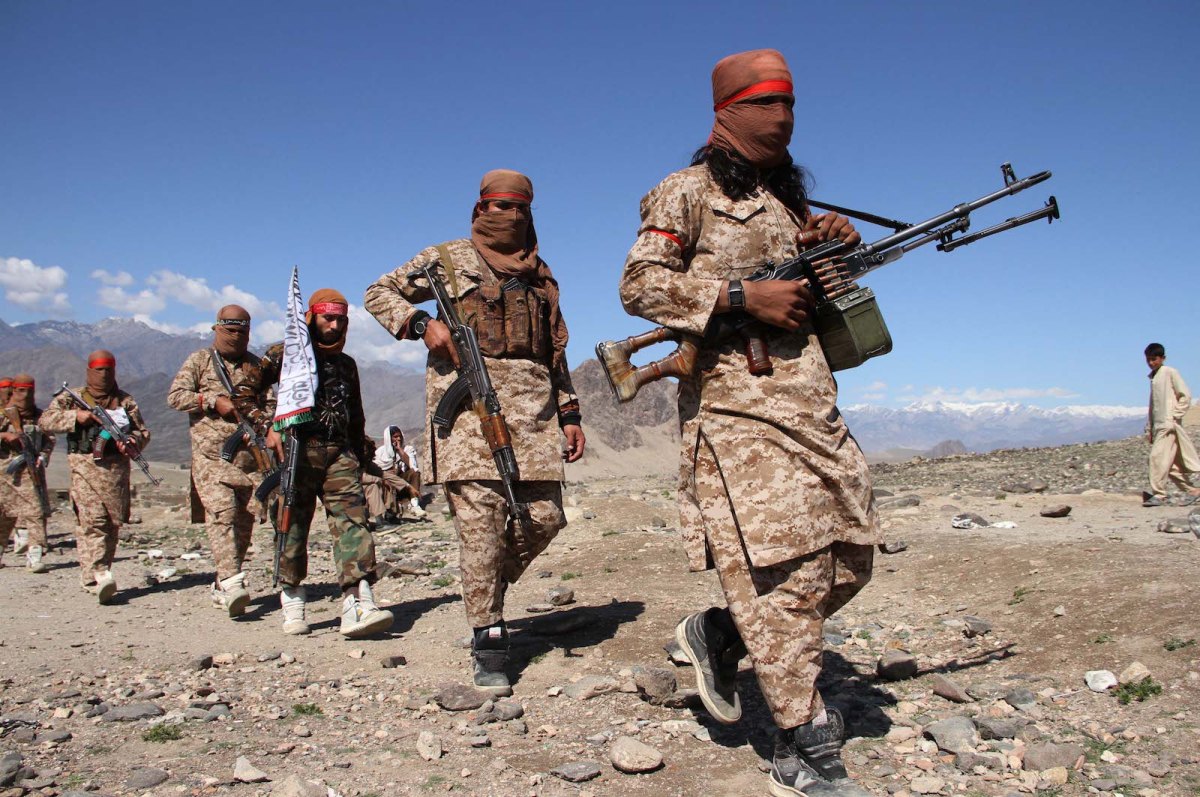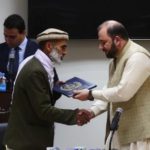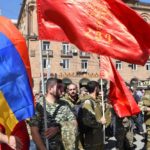As the Afghan government and rebel Taliban engage in peace talks in Doha, Qatar, hopes for a breakthrough are still constrained by myriad sticking points as civil war violence continues apace.
While Afghanistan President Ashraf Ghani’s government negotiation team has insisted on a battlefield ceasefire before entering substantive talks, the Taliban has stood firm on discussing and agreeing on the causes of the war before quieting their guns.
The negotiations aim to end 19 years of fighting and establish a plan for post-war society, including a potential power-sharing arrangement. Talks to date have focused on setting agendas and how negotiations will be held.
The Taliban are demanding that the conflict be formally acknowledged as a “jihad”, that negotiations are conducted under the so-called Hanafi school of thought, and that the US-Taliban agreement signed in February serves as a basis for the two sides’ dialogue.
The US deal paves the way for the withdrawal of all foreign forces from Afghanistan by May 2021. Differences over a prisoner exchange agreed to in the US-Taliban deal delayed the start of the talks.
The intra-Afghan talks began on September 12 and were marked by an historical opening ceremony in Doha, with speeches by top diplomats and international community representatives carried virtually due to Covid-19 restrictions.
The two Afghan teams have been meeting daily since, in meetings that have so far highlighted sticking points rather than common ground. Meanwhile, clashes continue on the battlefield as recriminations fly in the media.
The Taliban have deployed their heavy guns to the talks in hard-core leader and Islamic scholar Sheikh Abdul Hakim Haqqani.
Sheikh Haqqani, who is serving as the Taliban’s chief negotiator, is known to be a key figure in the Taliban movement and is the author of several high-level Islamic books on the judiciary and Islamic Hadiths.
He also leads a madrassa in Ishaqabad in Quetta, Pakistan known for graduating many hard-line Taliban military commanders.
Mullah Mohammad Yaqoob, son of deceased former Taliban leader Mullah Mohammad Omar and current chief of the military commission, is among his former students, says an ex-student of the madrassa who wished to remain anonymous for security reasons.
Sheikh Haqqani was also known to be a close religious and political aide to movement Mullah Mohammad Omar, the Taliban’s founder in 1994, and was reportedly among the first to receive news of his death from tuberculosis in 2013.
According to a well-informed source, it was Haqqani’s idea to keep the news a secret until it was officially announced in 2015, when he appointed Mullah Akhter Mohammad Mansour as the new Taliban leader in 2015.
His key role in the Taliban’s political and military strategy are a testament to the continuity of the struggle which in its early years started in defense of Islamic ideology.
He has also been instrumental in the Taliban’s transformation from an indigenous to a global actor in this Islamic commitment. Sheikh Haqqani is also known to be highly
regarded as a religious mentor by local commanders and neighboring Islamist groups alike.
“He calls all the Muslims of the region as brothers,” adds the former student of the Sheikh. “For him, Afghans, Pakistanis, Iranian Sunni, and others are all the same.”
It’s all significant considering many of the issues in dispute in Doha are scholarly and political at their root.
One concerns full adherence to the Hanafi school of thought, which is one of the four principal Sunni schools of Islamic jurisprudence, largely followed in the Indian subcontinent, Central Asia and Turkey.
The controversy centers on whether to maintain the Shiite Ja’fari school as a source of law in the Afghan legal system.
The Ja’fari school differs from Sunni jurisprudence on matters of inheritance, religious taxes, commerce, personal status, and the allowing of temporary marriage or mutʿa. It was introduced in Afghanistan only during the post-2001 reconstruction reforms.
Both teams confirm that talks are ongoing, but the issue increasingly seems to be used as a stalling mechanism to delay broad and meaningful talks.
Mujiburahman Lemar, a member of the Afghan government’s technical team in Doha says, “Progress has been made and Taliban are now discussing with their leadership about the alternatives we proposed. We are waiting. Soon they will get back to us.”
However, critics believe no substantive agreement can be reached by the current Afghan government team, which is widely perceived to lack strong politicians or influential figures with the authority to be effective.
“The republic team is formed of several different sides, it lacks unity of thought, action and views with tiny authority and zero power,” comments Nasratullah Haqpal, a Kabul-based political analyst.
Other observers view the Taliban’s hard-line views and strategy as a threat to the country’s young and fragile democracy, including progress made in the past decades regarding women’s and civil rights.
Meanwhile, Afghanistan’s battlefields continue to be a bloodbath. More than 11 civilians were killed by an airstrike carried out by the Afghan forces in Kunduz province on September 19.
The Taliban claims that the airstrike killed 23 people, including women and children, and injured 17 others.
The highways that connect Afghanistan’s provinces and districts, already on the edge of danger for common travelers, are now filled with Taliban checkpoints looking for members of Afghan security forces to exact revenge.
News reports said the Taliban later launched a wave of attacks on security checkpoints in southern Afghanistan, killing a total of 28 Afghan policemen.
Zelgai Ebadi, a spokesman for the Uruzgan governor, said Taliban fighters offered 28 local and national police officials a chance to go home if they surrendered on September 22, “but after taking their guns, the Taliban killed them all.”
Negotiators are not allowing the violence to scupper the talks, at least not yet.
“Expecting to end 20 years of war in two days is neither practical nor logical,” says Naeem Wardak, a Taliban political spokesperson. “There is a need of time, talks, and discussions. What matters though is determination and willing to start discussion. We have them both.”
Other influential actors are so far staying on the sidelines. Among them are former president Hamid Karzai and ex-mujahideen leader and founder of the powerful Hezb-e-Islami party Gulbdeen Hekmatyar.
Both have refused to join the High Council for National Reconciliation and have kept their distance from the team announced in a decree by President Ghani.
Karzai announced in a statement that he will continue his personal efforts for peace but will not serve any government institution.
Hekmatayr, who returned to the Afghan political scene after the peace deal between Hezb-e-Islami and the government signed in 2016 called the mujahideen’s membership and political leaders in the council “symbolic and ineffective.”
Whether there is any progress towards peace will depend on the willingness of all actors to compromise and find common ground. While Ghani’s government and the Taliban are now engaged in talks, the clouds have not yet begun to clear over Afghanistan’s future.













